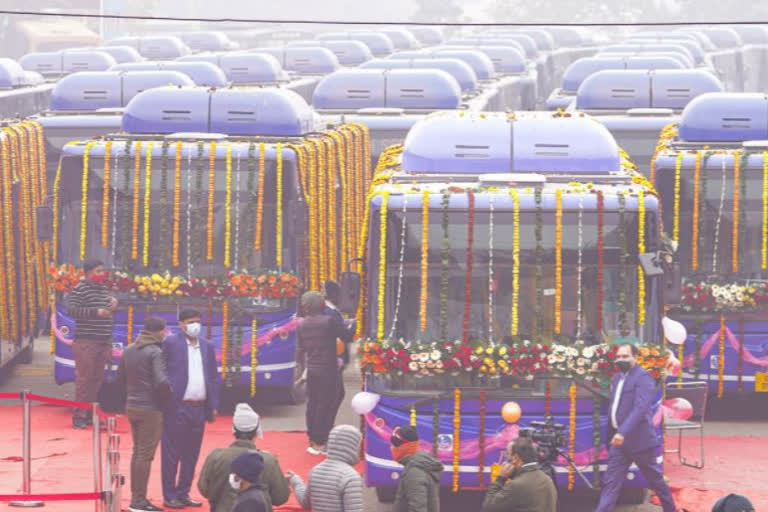New Delhi: In a major push for the adoption of electric vehicles for public transport in the country, a central PSU under the Ministry of Power has placed the country’s biggest ever tender for the supply of electric buses. Convergence Energy Services Limited (CESL), a wholly-owned subsidiary of Energy Efficiency Services Limited (EESL), which is a joint venture of PSUs under the Ministry of Power, Thursday announced the request for proposal for the supply of more than 5,500 fully electric-powered buses under the grand challenge. These buses are required for a combined demand from five major cities.
Under the tender, the CESL aims to deploy 5,450 single-decker buses and 130 double-decker buses across five major cities.
“The cities to be covered under the scheme are Bangalore, Delhi, Surat, Hyderabad, and Kolkata in the first phase. The first lot of e-buses are expected to hit the roads by July this year,” said the company.
CESL said the intent of the programme is to enhance the support to state governments in achieving their electric mobility targets as well as further build an infrastructure for electric mobility in the country.
The tender for more than 5,500 electric buses for the city bus network is being seen as a major step in achieving the target of a net-zero nation by 2050 and getting closer to achieving energy independence by 2047.
The scheme includes 100 per cent electric buses and aims to reduce the operating costs for cities, removing bottlenecks of procuring e-buses by State Transport Undertakings (STUs), development of best practices and operating standards.
The tender is aimed at enabling operational and passenger efficiencies by evolving into a platform for modernization of city bus network in the country.
Combined tender to cut cost
Officials said the participating state transport undertaking will benefit by getting lower prices due to the aggregated demand, high quality benchmarked technology, and access to FAME-II incentives, among other things.
The state undertaking will also benefit from access to domestic and international sources of finances.
“Keeping in mind the changing environment where climate change-related issues and energy independence have turned the focus on EVs, CESL will later be expanding support to more cities,” CESA said.
In a statement sent to ETV Bharat, Mahua Acharya, MD and CEO of CESL said the real meaning of aggregation across cities under an OPEX model is actually homogenization.
“This Grand Challenge Tender represents efforts by so many people – STUs, OEMs, financiers, Niti Aayog and DHI. This is the biggest ever scheme in the world – and is based on an innovative, asset-light model that makes it possible for STUs to deploy affordably and at scale,’’ she said.
Mahua Acharya said that by reducing carbon emissions and air pollution this mandate will help India in successfully meeting climate change targets.
“We are optimistic that this Grand Challenge will further provide a push to our goal to attain transformation to EVs from fossil fuels in the coming years throughout the country and the world,” said Amitabh Kant, CEO, NITI Aayog.
He further said that standardizing tendering conditions in diverse cities is a big step towards the transformation of public transport in India.
Delhi’s Transport and Environment Minister Kailash Gahlot said the city government has requested for 1,500 buses under the Grand Challenge and stands ready to offer state subsidies where they are required.
“We are aggressively pursuing electric mobility. I commend CESL for its efforts to standardize the terms and conditions for how this is delivered,” Gahlot told the media.



